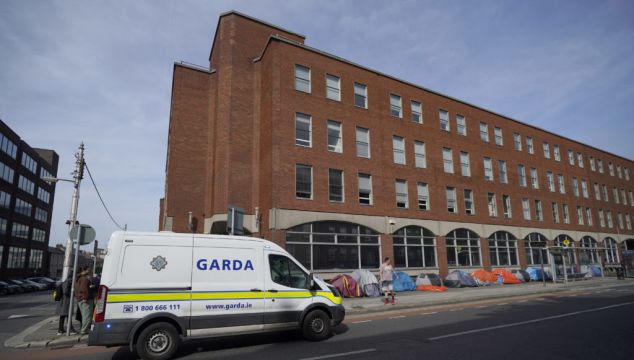The Department of Justice has estimated that approximately 50 per cent of international protection applicants this year have been granted permission to remain in Ireland.
While approximately 72 per cent of people were refused refugee status and subsidiary protection at the first stage of the process so far this year, rejected applicants have the opportunity to appeal.
Approximately 60-70 per cent of decisions are upheld at the appeal stage, but a percentage of rejected applicants are given permission to remain on “humanitarian or family grounds”.
Therefore, the department’s deputy secretary general Doncha O’Sullivan said: “When you factor in the people who get remain for non-protection grounds, it’s probably a little bit closer to 50 per cent.”
He was responding to questions from Sinn Féin integration spokesperson John Brady and Senator Tom Clonan during a session of the Oireachtas Committee on Children, Equality, Disability, Integration and Youth which also featured officials from the Departments of Integration and Justice as well as the International Protection Office (IPO).
In his opening statement, Mr O’Sullivan said Ireland had experienced a significant increase in international protection applicants from a broad range of countries.
The number of international protection applicants last year was 13,651, which is a 186 per cent increase on 2019, the most recent comparable pre-pandemic year.
As of May 21st there were more than 20,648 people accommodated in the International Protection Accommodation Services, compared with 11,000 people at this time last year.
Carol Baxter, assistant secretary general at the Department of Integration, said the department was working on a number of projects to procure and build more State-owned accommodation centres.
She said 102 people are currently accommodated in tents in Knockalisheen and there will also be tented capacity for 128 people at Mullingar Barracks.
Ms Baxter added that 627 men are accommodated in Citywest which has bed capacity for 600 people.
She said while that facility paused entry for new arrivals, accommodation has been provided for all children and their families.
“As of May 24th all adult females and couples seeking accommodation since January have also been accommodated,” Ms Baxter said.
However, 217 men remained unaccommodated on that date.
During questioning, Senator Clonan was also told there was no systematic information on where applicants go after they are rejected from Ireland.
Mr Clonan said the State was being “irresponsible” on this issue and recommended that the department should engage with researchers on the matter.
Green Party TD Patrick Costello raised concerns over the use of robotisation and artificial intelligence in the information systems for applicants.
Mr O’Sullivan said he wanted to “completely assure” that these technologies were not used to determine cases and were instead used to answer queries in relation to case management such as hearing dates.
Senator Lynn Ruane said LGBTQ applicants had expressed fear or concern about the interview process, including being asked questions on whether they had frequented gay establishments in Dublin.
She said many may have had their sexuality extremely repressed in their country which means they may not necessarily be actively attending establishments or seeking partners in Ireland.
David Delaney, director of Immigration Service Delivery at the Department of Justice, said interviewees are given United Nations High Commissioner for Refugees (UNHCR) training.
He said: “One of the basic principles of an asylum claim is substantiating credibility, sometimes you have to ask questions to query the exact details of a claim.
“And in those scenarios, an interviewer is taking account of all the variables and trying to balance the need to get the evidence to underpin the credibility to be able to give someone a refugee status or subsidiary protection if that’s appropriate for them.
“So that’s the context for asking questions, but equally so, in the vast, vast majority of cases I think it’s held in a very, very sensitive manner by panel members and civil servants.”
The committee was told additional funding of 18 million euros had been provided for the IPO which is being used to recruit extra staff and office space.
Emer Mullins, principal officer at the IPO, said a review found key criticisms including the length of time to process cases, lack of available interview slots, and lengthy and unwieldly questionnaires.

She said recommendations had been brought forward into a modernisation plan.
The Department of Justice said it is continually reviewing the resource needs at all steps in the process.
Mr O’Sullivan said: “The department is confident that these new measures will significantly improve the operation of the international protection process in Ireland, and critically keep processing times to a minimum.”







